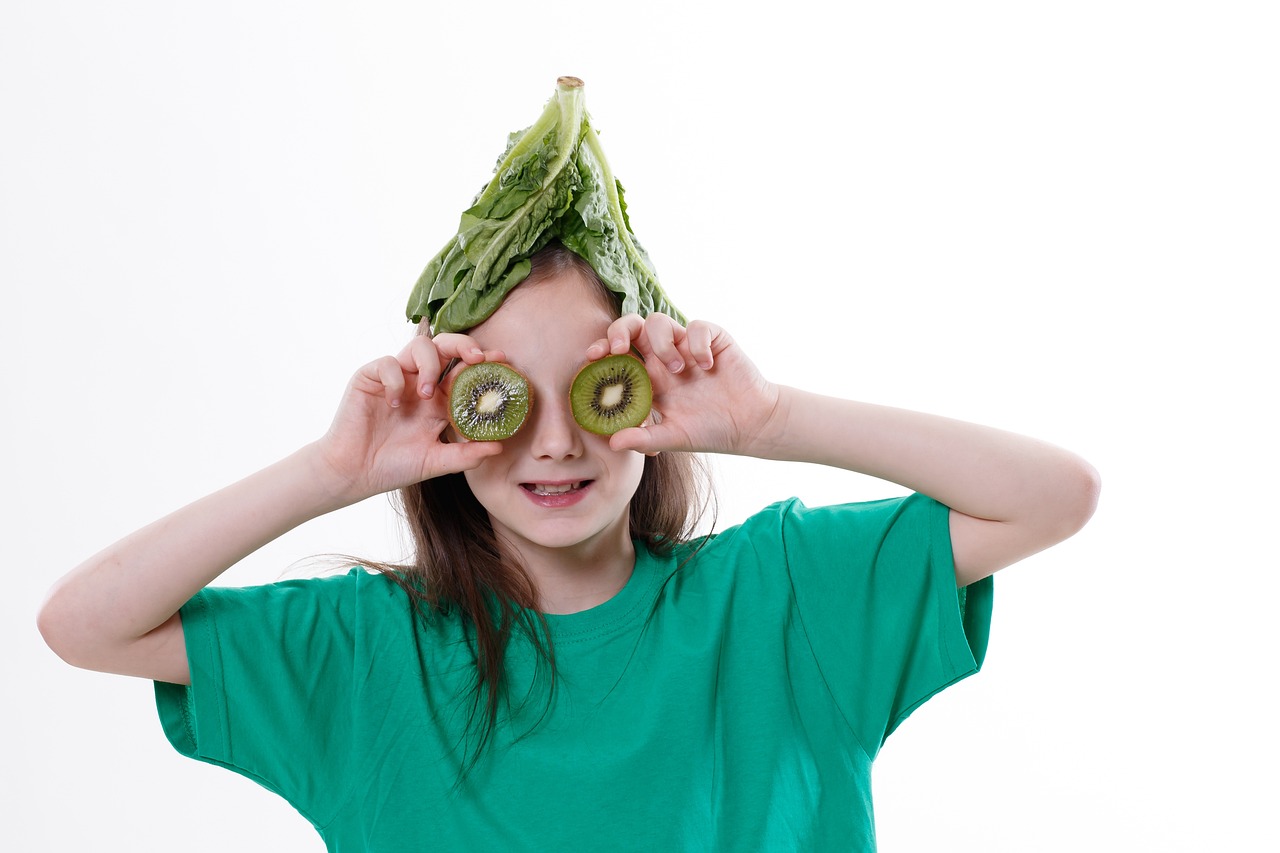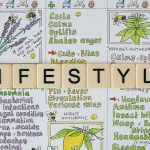Eating habits are formed in the early years of childhood. From birth to adolescence growth is at its peak and nutrient reserves like calcium and iron are largely established. It is possible to raise healthy vegan kids.
If you are already living a vegan or vegetarian lifestyle there are just a few things you need to consider as you add children into the mix of your family. Early nutrition helps set the stage for physical growth but nutrition is also critical for brain development too.
For the best results, it is recommended that the first food for a vegan infant be breast milk. Nursing an infant has several advantages, such as augmenting the immune system, hindering infection, and decreasing the chances of allergies. Furthermore, breast milk was tailored specifically for baby humans and may contain components that are necessary for developing infants, despite not having been acknowledged as essential, that are not included in baby formulas.
Studies suggest that the breast milk of vegetarian women contains less pesticides than that of women who eat a standard American diet.
If you are breastfeeding and your diet does not contain substantial amounts of vitamin B12, your infants should be taking 0.4-0.5 micrograms of the vitamin daily.
If you decide not to breastfeed or feed your baby with breast milk exclusively, you can find a number of soy-based formulas in the market. These products support normal infant growth and development. Vegan families prefer soy-based formulas as the ideal choice when breast-feeding is not an option.
During the first year, breast milk and commercial infant formula should be the only milk sources used, and alternative milk sources such as soy milk, rice milk, other plant milks, and homemade formulas should not be relied upon. These foods are not balanced enough in terms of protein, fat, and carbohydrates, nor do they contain sufficient amounts of various vitamins and minerals to make up a major part of a diet during the first year.
Vegan Weaning
At the time of switching from milk to solid foods, an iron-enriched infant cereal makes a wonderful initial meal. The cereal can be combined with expressed breast milk or a plant-based formula to create a thin texture. It is important to provide an assortment of items when transitioning to solid foods, such as vegetables, cereal, peas, beans, lentils, tofu, crushed nuts, seeds, and fruit. So long as your infant is not allergic, you may give them nuts commencing at six months old; nevertheless, they should be small enough to be a powder. Youngsters under five years old should not be given whole nuts due to the danger of choking. You can substitute sugar with naturally sweet fruits, like apples and bananas, or vegetables like carrots, sweet potatoes, and butternut squash to sweeten food. One should never put artificial sweeteners, sugar, or salt on foods meant for infants.
It is essential to remember that as your baby begins consuming less breast milk and formula, you need to pay particular attention to overall nutrition. Consult with your family doctor or health advisor when necessary.
Teenage Vegans
Teenagers who consume a vegan diet have dietary requirements that are identical to those of any other teenager. The adolescent period of 13 to 19 years old is one of considerable development and transformation. Nutritional needs are high during these years. A teenager following a vegan diet should eat a broad assortment of nourishment, such as fruits, veggies, plentiful dark leafy greens, entire grain items, nuts, seeds and beans. Teenagers who follow a vegan diet should be mindful of their intake of protein, calcium, iron, and vitamin B12.
It is suggested that 11-13 year old’s should aim to consume 0.43 grams of protein per pound of weight, while 14-18 year old’s should aim to consume 0.4 grams of protein per pound of their weight. Individuals who are engaging in strenuous physical activity (such as marathon runners) may require a bit more protein intake. A sixteen-year-old individual with a weight of 120 pounds needs to receive approximately 48 grams of protein on a daily basis. In terms of food, one cup of cooked dried beans contains about 15 grams of protein, soy milk gives you 7 grams per cup, 4 ounces of tofu offer between 10 and 12 grams, 1 Tablespoon of peanut butter or peanuts has 4 grams of protein, and one slice of bread or one cup of grain provide around 4 grams.
Fruit, fats, and alcohol are not excellent sources of protein, so any diet relying solely on these foods may likely be deficient in protein. Plant-based diets that include a wide variety of fruits, vegetables, legumes, grains, nuts, and seeds typically provide adequate protein as long as caloric intake is sufficient enough to support proper body functioning and development. There is no need to take protein supplements. A diet high in protein will not provide any health benefits and will not result in increased muscle growth. During adolescence, calcium is used to build bones. The solidity of bones is established during the teenage and early adult years, so it is essential to incorporate useful sources of calcium in a teenager’s diet everyday.
Cow’s milk and dairy products do contain calcium. Although calcium can be found in dairy products, there are other healthy foods that can provide decent amounts of this mineral such as tofu containing calcium sulfate, kale, collard greens, mustard greens, and tahini, not to mention fortified soy or plant milks and orange juice. A vegan can get the iron they need by having a varied diet, and it also helps them avoid consuming too much fat and cholesterol that are present in foods such as beef or pork. Eating a dish rich in vitamin C alongside your meal can help to maximize the amount of iron you absorb. All of citrus fruits, juices from them, tomatoes, and broccoli contain Vitamin C in good quantities. Foods containing a considerable amount of iron are broccoli, watermelon, spinach, black-eyed peas, blackstrap molasses, chickpeas, and pinto beans. It is essential for teenagers to get enough vitamin B12 in their diet. Vitamin B12 is not found in plants. Some cereals have vitamin B12 (check the label). Vegetarian Support Formula nutritional yeast provided by Red Star supplies Vitamin B12.
Many teenagers are concerned with losing or gaining weight. To lose weight, look at the diet. Substitute meals high in sugar and fat with a healthier selection of fruits, vegetables, whole grains, and legumes. If an individual’s dietary habits are already good, engaging in physical activity such as going for a walk, jog, or swim on a regular basis can help keep their weight in check. To gain weight, more calories are needed. It’s possible that having meals more regularly or consuming nourishment with a bit more fat and less mass could be of assistance. Attempt to consume three or more meals on a daily basis, regardless of if you are aiming to bulk up or slim down. If you eat only one meal a day, it can be difficult to get all the necessary nutrients. If you find it difficult to manage how much you eat or if you are experiencing excessive weight loss, it is important to talk to your healthcare professional.
Often there is just not enough time to eat. Here are some snacks that are great for kids that can be taken on the go. Snacks that can be brought from home may consist of apples, oranges, bananas, grapes, peaches, plums, dried fruit, bagels with peanut butter, carrots or celery sticks, popcorn, pretzels, soy cheese pizza, bean tacos or burritos, salad, soy yogurt, soy milk, rice cakes, sandwiches, and frozen juice bars.
Eating for Energy
Vegan diets generally include fewer calories, so kids must eat greater amounts to acquire the required amount of energy. It can be difficult to ensure that children get enough calories in each day since they generally have smaller appetites. Incorporating healthy cooking oils, such as those derived from soya bean and rapeseed, should be part of an individual’s diet as they help increase calorie intake and provide the crucial fatty acids needed for the growth of the brain.
Focus on the following nutrients from the age of one:
Protein
Proteins are fundamental for the growth and advancement of any youngster, thus making it an important part of their daily dietary regimen. It is possible for vegans to include a selection of different legumes, pulses, and lentils in their diet which will provide an adequate amount of protein with an ideal blend of amino acids. Foods that have a grain-like structure, such as quinoa, plus nuts and nut spreads, offer protein, provided your child has no issues with allergies. Substitutes for eggs can be found in health food stores and a few grocery stores, and can be utilized for both cooking and baking. Try to incorporate three servings of vegetable protein daily to guarantee that you are receiving proper nourishment.
Calcium and Milk Alternatives
Calcium is necessary in order to have strong bones, and it is estimated that almost half of bone mass is created before a person turns eight. Over the next eight-year period, an additional 45 percent will be put down, and the remaining 10 percent will be spread out across the subsequent 10 years. It is absolutely necessary that kids who are vegan are getting enough calcium in their diet.
A glass of fortified plant-based milk (approx. 300ml) in a day would be good to pick, and one might want to also think of incorporating calcium-rich cereals and soya yogurts into the child’s diet. Oat and coconut-based drinks are also an option. Many are supplemented with calcium, but not all contain vitamin D, so be sure to check the labels. Children as young as five can consume fortified rice milk as their main beverage.
Plant-based spreads can be used. Incorporate almonds, calcium-fortified tofu, beans, and greens into your child’s regular eating habits to ensure they are obtaining adequate calcium. It is necessary for parents to look into the calcium needs depending on their child’s age.
Iron
Iron plays a vital role in the creation of red blood cells. It is important to have a diet that is regularly composed of good sources of iron, which include pulses (such as beans, lentils, and peas), dark green leafy vegetables (e.g. broccoli, okra, watercress, or spring greens), wholemeal bread and flour, nuts, wholegrains, and fortified cereals. Dehydrated fruits like apricots, plums and figs are excellent alternatives. You can help your child receive more iron absorption by pairing an iron-rich food with a food that contains Vitamin C. For example, you can serve orange wedges with fortified cereal or bell peppers with lentils in a vegetable casserole.
Vitamin D
To keep your bones and teeth strong, your body needs to absorb calcium and this can be done with vitamin D, which is not in many foods, but is best found by being exposed to the sun. Plant-based milk, spreads and cereals that have been fortified are the top choices for vegans since dietary sources are restricted. The Department of Health advises that all kids aged between 1-4 should consume a vitamin D supplement on a daily basis, containing 10µg. It is advised that kids in the age range of 6 months to 5 years should consume a vitamin mixture that includes A, C, and D every day. Prior to purchasing a vitamin D supplement, ascertain that it is appropriate for vegans by examining the packaging.
Omega-3 Fatty Acids
These essential fatty acids are necessary for the growth of the brain, and they help keep the brain healthy and performing at its best. They’re also important for vision and heart health. Plant sources include chia seeds, flaxseeds, hemp and walnuts. Despite plant foods having lower levels of essential fats, some vegans – such as those who are pregnant and breastfeeding – choose to take omega-3 fatty acid supplements sourced from microalgae.
Vitamin B12
Vitamin B12 is critical to the production of red blood cells, as well as the development of the brain and nervous system. It is commonly known that B12 can only be sourced from animal products. However, B12 can also be found in fortified cereals, yeast extracts, vegetable milks, and some soya products. It is essential for your kid’s diet to contain a variety of ingredients. If not, a B12 supplement may be required. A dependable provider of iodine is also essential, and a supplement is generally advised.
Fibre
Foods that are high in fibre tend to make children feel very full and may prevent them from getting all of the calories and necessary nutrients. Choose nourishing foods that have a lot of nutritional value, like avocados, nuts and dried fruits, which also include fiber. Children should be encouraged to brush their teeth after consuming dried fruits to reduce the possibility of cavities.
To conclude, vegan diets can be a healthy choice for kids if their guardians are aware of the essential nutrients necessary for their growth and maturation. In addition, parents of young vegetarians need to be very vigilant in making sure they are obtaining a healthy eating plan and, if needed, get guidance from a nutritionist.









